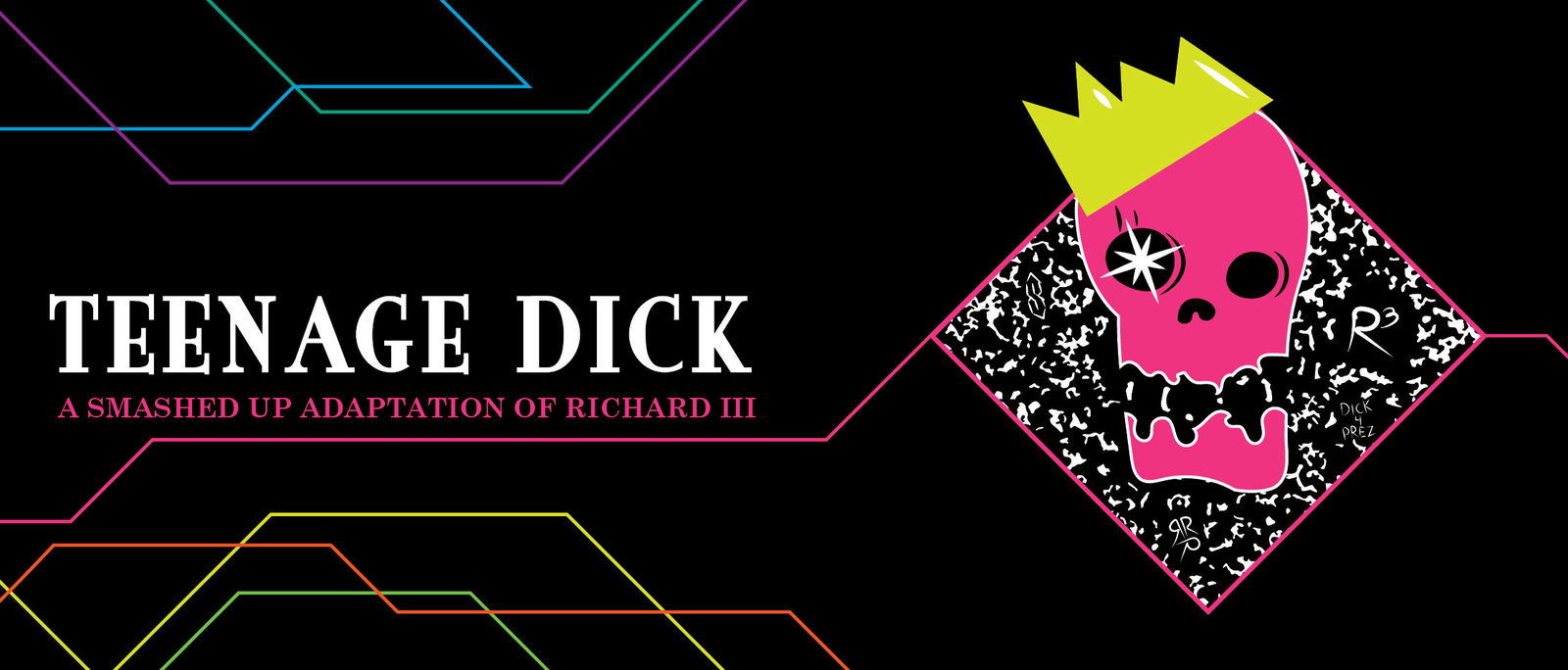Rehearsals began this Tuesday, December 11th, for TEENAGE DICK, Mike Lew’s new play that is “vaguely after Richard III”. Lew takes the broad outlines of Shakespeare’s play and resets it in an American high school. Richard, a student with cerebral palsy, is determined to take down the football quarterback and become the Senior Class President — by any means necessary. With boldly comic turns, the play explores whether it is better to be loved or feared.
MARY SCHMIDT
First off, I am very, very “fresh eyes” here. I have no theatre background, have never read Richard III by Shakespeare, and had never heard of Michael Lew before this. I just have always liked plays is all. Thanks to Luan and ART for the opportunity to try something new, and thanks to the ART Guild for providing lunch.
The following are legit first impressions/notes, and I’m going to try to not overthink it. I’m breaking it up into 2 parts: process vs. play/content.
THE PROCESS:
- Holy crap, these people are not kidding with the punctuality and their 5 minute breaks are actually 5 minutes long!
ELIZABETH TAVARES
“Green and yet ungovern’d”: or, verdant villain Richard
The first day of rehearsal is green—not in the sense of unformed or inexperienced, but rather in the sense of Dante’s eternal hope. All of the pieces to the puzzle that will be TEENAGE DICK whirl in the room as one presentation on the pop songs informing the soundscape is followed by a series of teen costume sketches thematizing the Tudor roses of red and white. You can see the shadow of the what the play can, ideally, become.
With personal investment in TEENAGE DICK, director Josh Hecht gave the brief that in this production he intends to “pull out all the stops.” The expression alludes to the stops in a pipe organ, allowing for variations in pitch and sheer volume. It also reminded me of another musical allusion to stops from “Hamlet”: when the prince rears up at his college pal for trying to manipulate him.
JIM MAYER
From the title, I thought it would be a more private eye/whodunit style-overall lighter than it turned out to be.
About the play itself:
- First, the hidden self/revealed self motif plays out in nearly every character-save Eddie, whose humor derives in part from his transparency. Perhaps this motif helps us, the audience, see ourselves “in new ways,” as Josh put it.
- Second, language is wonderful, especially Richard’s. His Shakespeare usages, if perhaps obvious, don’t seem forced. One anachronistic phrase however was “Sadie Hawkins”


